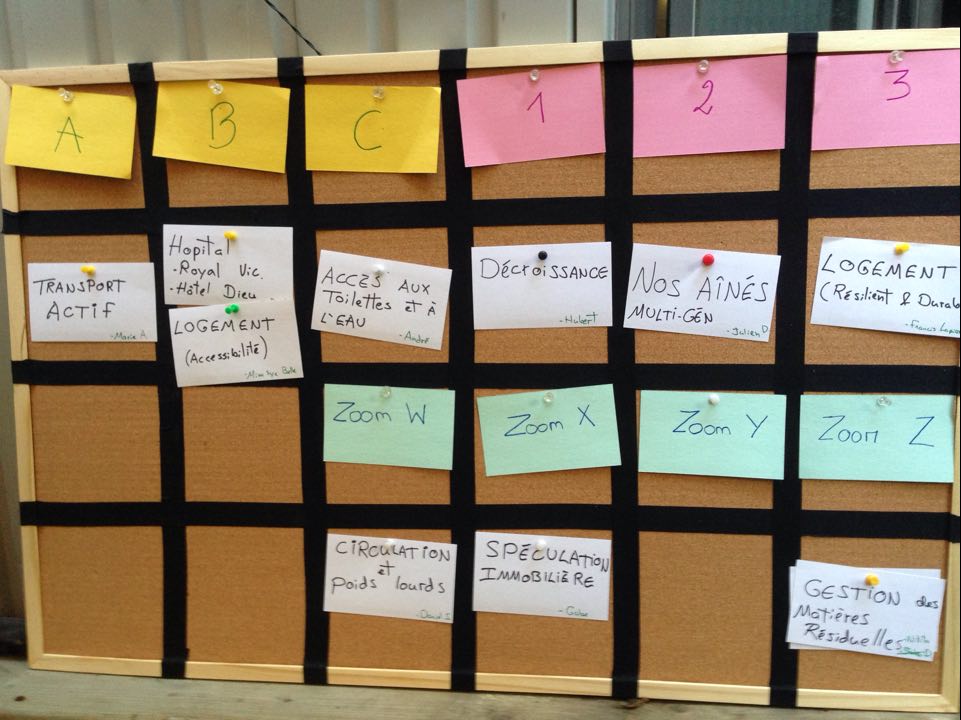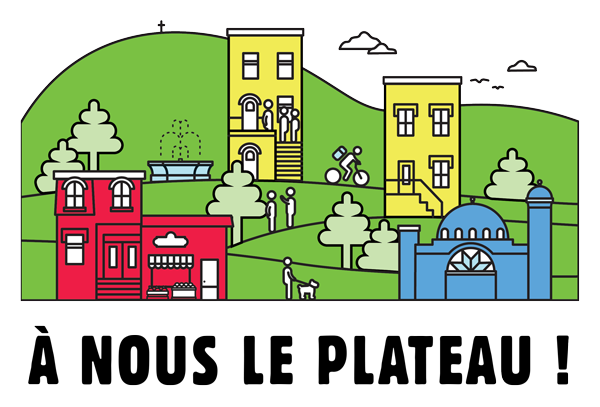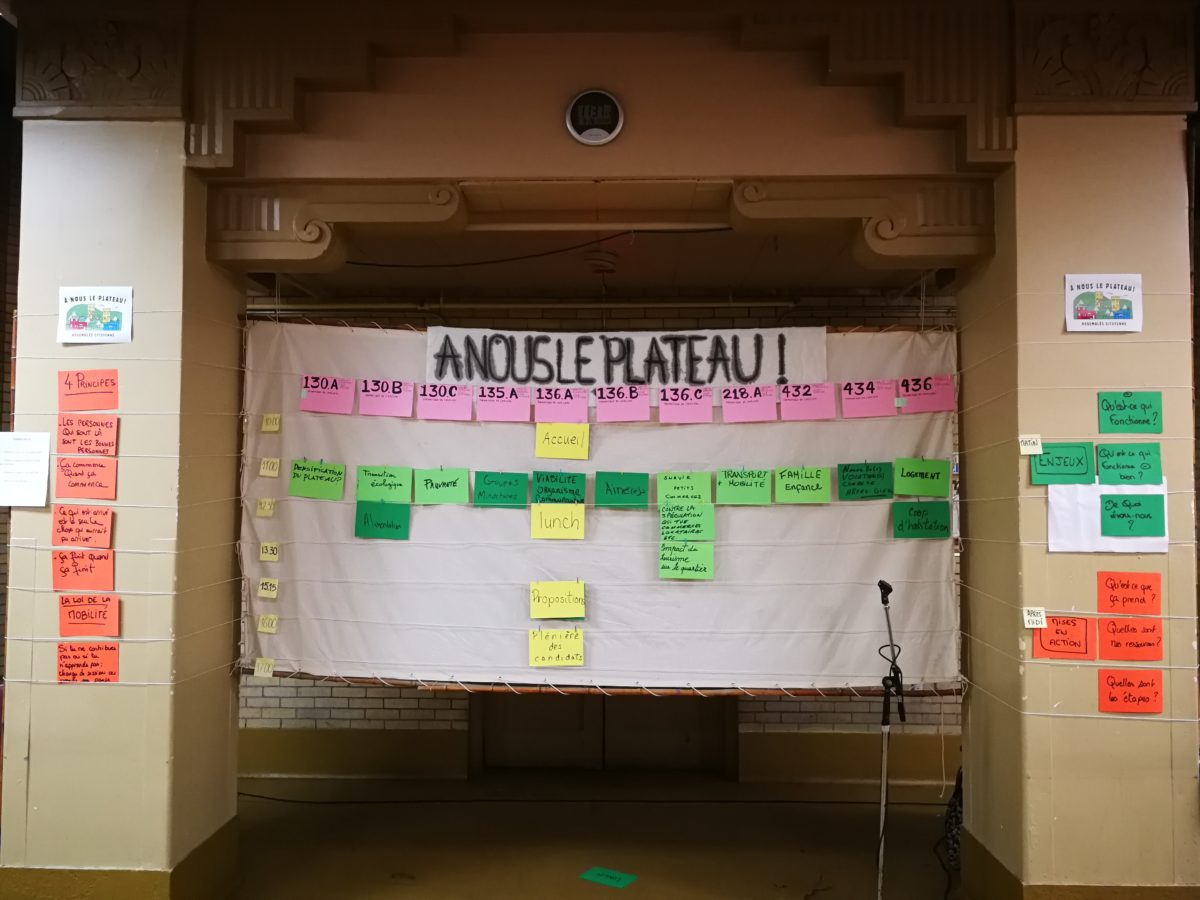Here are the themes that were developed during all our previous assemblies.
2021
- Active transportation (February)
- Housing (March)
- Elders (April)
- will come soon…
2020
- Degrowth
- Preservation of the Hôtel-Dieu and Royal Victoria sites
- Active transportation and Heavy-weight transportation
- Real estate speculation
- The Elders
- Resilient and sustainable housing
- Access to water and sanitation in the public space
Here is the video presentation of those workshops: https://www.youtube.com/embed/Z4RjjLF-aJQ
2019
- The Elders
- Densification
- Economy
- Energy
- Family & Youth
- Hôtel-Dieu
- Housing
- Minorities
- Poverty
- Ecological transition & food security
Collective workshops
of a new kind
Various thematic workshops take place during our assemblies. The themes are determined as according to the open space method in the opening plenary and are treated subsequently in sub-groups.
During the opening plenary, the themes of the day are determined with the participation of all and deposited on an “empty” agenda, at predetermined times and places. The thematic workshops are then formed and take place in 2 periods (usually morning and afternoon). The assembly end with a presentation of each workshop, as well as the testimony of electoral candidates if present, who are invited to take a bath of citizen self-management and get involved themselves as citizens.
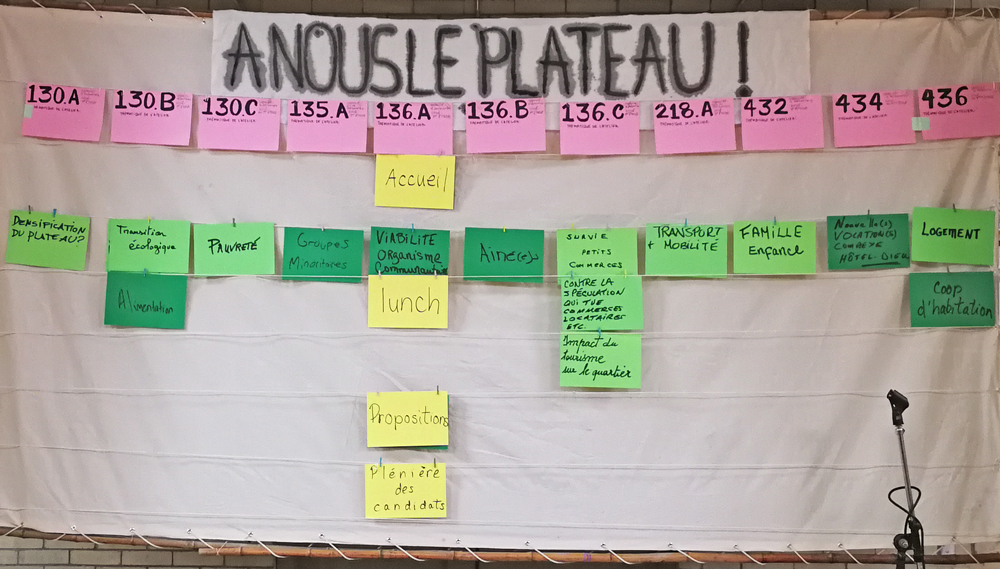
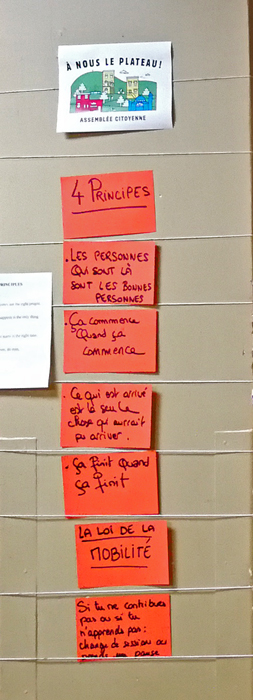
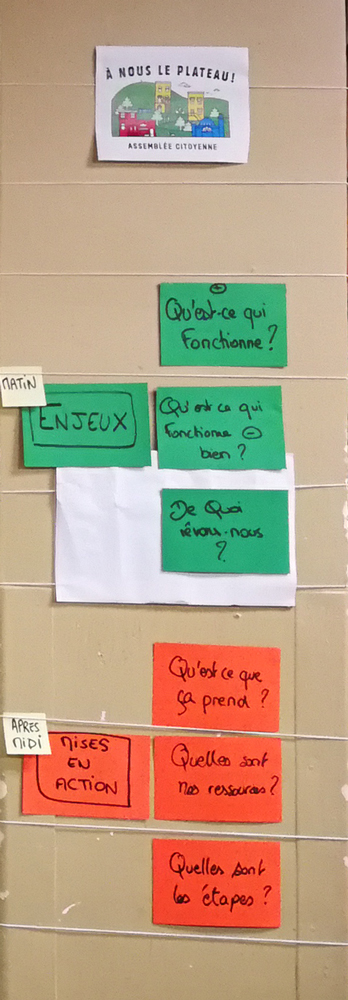
Participation Principles
In order to allow everyone to be autonomous in the sub-groups, some principles of participation and communication are presented during the opening plenary. The open space method proposes 4 principles and one law:
- The people present are the right people.
- The workshop begins when it begins.
- What happens is the only thing that can happen.
- The workshop ends when it finishes.
The law of mobility is to invite everyone to change workshops or take a break if where he/she feels it is not nourishing or inspiring.
These principles allow better communication with each other and lay the groundwork for an inclusive environment.
Thinking stages
The first session is devoted to exploring the current challenges of each theme. More precisely, the participants are invited to define and list:
- What works
- What works less well
- What we dream of
In the second sessions (usually after a free community dinner), the participants return in their sub-group to discuss the necessary actions. It is a question of determining and listing:
- Resources required
- The steps that need to follow
Plenary Presentation
Following the two periods of work in sub-groups, each group is asked to draw up a table summarizing the various points discussed and to designate one or more presenters of the workshop’s results.
Find here more details on how our different assemblies went:
- September 28th 2019 Citizens’ Assembly
(organized as part of federal and municipal elections) - August 28th 2020 Citizens’ Assembly
(organized in various locations and online due to Covid)
